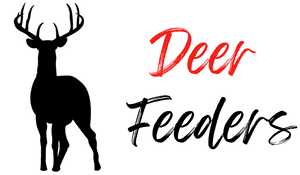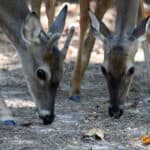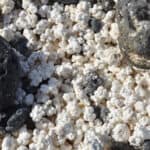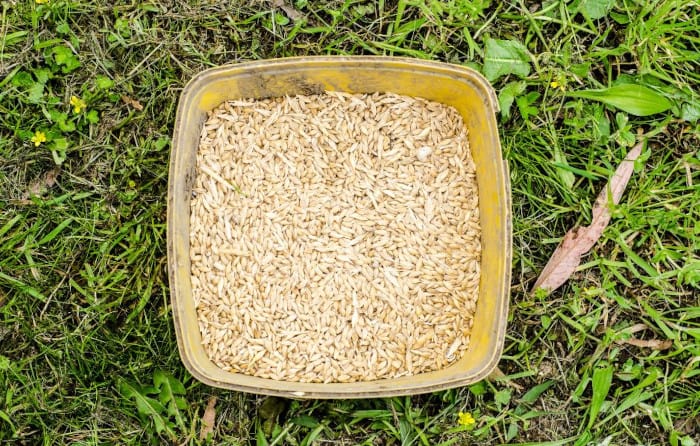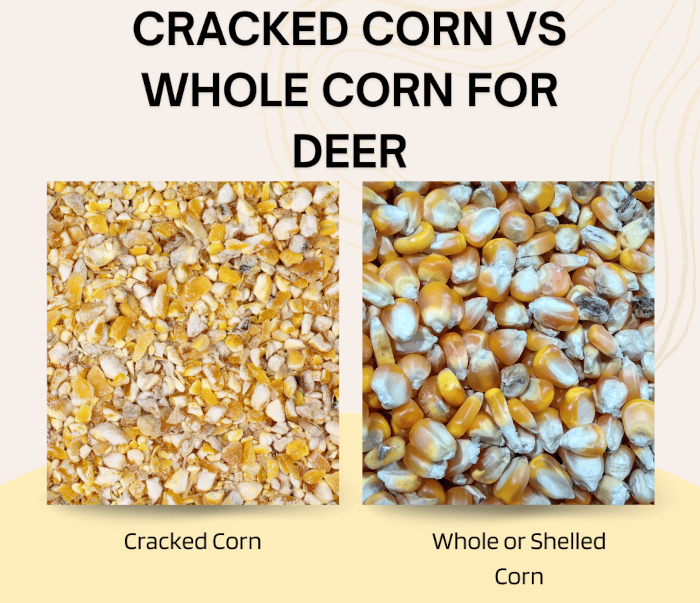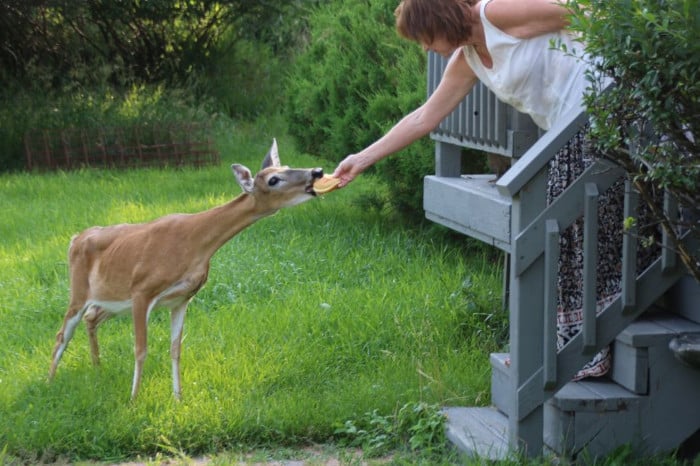My day job in the sporting goods market provides me with the opportunity to interact with a variety of deer hunters and land managers. Through those interactions, I’ve noticed that some questions seem to be more common than others. One deer feeder-related question I’m asked from time to time is, do deer eat corn on the cob?
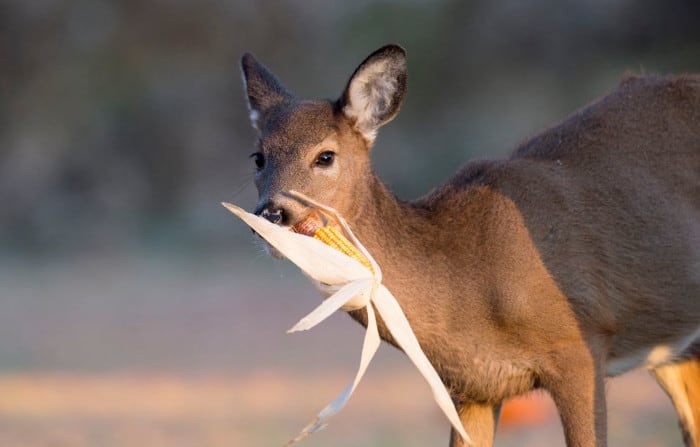
Just to clarify, the eat corn on the cob question is commonly confused with another related question asking if deer can eat the corn cob itself. These are two very different questions with very different answers.
Key Takeaways
– Deer’s natural diet consists mainly of grasses, leaves, twigs, and buds.
– Deer will eat corn right off the cob and will sometimes eat the corn cob as well.
– While corn is commonly used as a deer food source by hunters and nature lovers, it has some potential concerns due to its limited nutritional value and potential risks.
– Providing deer with alternatives that mimic their natural diet, such as high-quality hay or alfalfa, is recommended.
What is Corn on the Cob?
Corn on the cob, as its name suggests, refers to ears of corn that still have their husks intact and still have corn attached to the cob. There are different varieties of corn available, such as sweet corn and field corn. While sweet corn is often consumed by humans due to its higher sugar content and tender kernels, field corn is mainly used for animal feed or processed into various products.
For this post, I’ll focus on field corn, or deer corn, commonly used as a supplement food source for whitetail deer.
In addition to being a favorite treat for deer, corn on the cob also provides significant nutritional value. It contains essential nutrients like carbohydrates, dietary fiber, vitamins (such as vitamin C and folate), and minerals (such as potassium). These nutrients contribute to overall health and well-being for both humans and animals alike.
Understanding Corn as a Food Source for Deer
Corn becomes available to deer in one of two ways:
(1) Corn is planted as a crop, and the deer feed on the corn right off the plant or once the corn has been harvested.
(2) Hunters or nature lovers intentionally put corn out as a food source or attractant for deer.
Within the hunting community, deer corn is likely the most popular and cost-effective supplemental whitetail food source. As a food item, corn is a relatively inexpensive crop (especially when grown in a food plot or as a food crop) that attracts deer and can serve as a viable food source during hard times when other natural food sources are limited.
However, there is a growing idea within the deer research community that corn may not be the best supplemental food crop, but I’ll get more into the downsides of corn later in this article.
Pros of Feeding Deer Corn
There are some legitimate benefits that corn offers for a deer diet, including:
A Viable Source of Carbohydrates
One advantage of giving deer corn on the cob is that it provides them with an excellent source of carbohydrates. Carbohydrates are an essential nutrient for deer, providing them with energy for their daily activities and helping maintain their body condition.
Corn is high in carbohydrates, particularly in the form of starch, which deer can easily digest. This allows them to efficiently convert the corn into energy, enabling them to sustain themselves throughout the day.
Decent Source of Proteins
In addition to being a rich source of carbohydrates, corn also offers other benefits for deer. It contains essential nutrients such as protein, fats, vitamins, and minerals that contribute to their overall health and well-being. Protein is particularly important for antler growth during the summer months when deer are actively developing their antlers.
Source of Fats
In addition to carbohydrates and proteins, corn is also a good source of fat for deer. Fats provide a concentrated energy source and help insulate deer from cold temperatures during winter.
Can be Used to Keep Deer on a Specific Hunting Property
As a supplemental food source, hunters use corn to help keep whitetail deer on or around a specific location for hunting purposes during deer season.
Overall, providing deer with corn on the cob has some good advantages, but it also comes with some potential concerns.
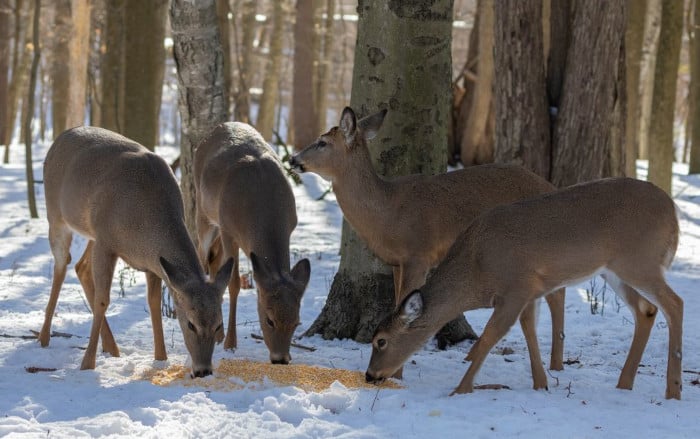
Cons of Feeding Deer Corn
While corn has some excellent health benefits for whitetails, it also has some potential downsides, including the following:
Lack of Vitamins & Minerals
While corn is high in carbohydrates, it lacks some essential vitamins and minerals that are crucial for deer’s overall well-being. Without access to a varied diet, deer may suffer from nutritional deficiencies, potentially impacting their growth, reproduction, and immune system function.
Digestive Concerns
In addition to nutritional concerns, feeding deer corn on the cob can also pose digestive challenges for these animals. Corn kernels are relatively hard and difficult to digest compared to natural food sources like grasses and leaves.
This can lead to digestive issues such as indigestion or even impaction in severe cases. Furthermore, sudden changes in diet can disrupt the delicate balance of bacteria in a deer’s stomach, causing gastrointestinal disturbances that affect their overall health.
Behavioral Concerns
Feeding deer corn on the cob may also result in potential behavioral changes that can negatively impact their survival. Deer become accustomed to receiving easy access to food through human intervention, altering their natural foraging behaviors. They may become less inclined to search for other food sources or engage in activities necessary for maintaining muscle tone and strength. This over reliance on handouts can make them more vulnerable during times when corn is not readily available or during harsh winter months when they need additional energy reserves.
Attracting Predators
Another risk associated with feeding deer corn on the cob is the potential attraction of predators. It’s worth noting that this issue is more of a concern for those that are feeding deer near homes or populated areas.
The concentrated presence of easily accessible food sources like corn can draw predators closer to areas where deer congregate. This increases the likelihood of predatory events occurring and can potentially pose a threat to other animal species in the area.
For example, coyotes are a common deer predator, especially for young, weak, or injured deer. A deer food source that attracts deer may potentially attract coyotes. Coyotes are one of the leading predators of small domestic animals like cats and dogs. So, a coyote attracted to the deer may opportunistically feed on someone’s outdoor cat.
Inadvertently Creating a Dependence on Humans
Another potential concern that can arise from feeding deer corn is that they develop a dependence on that particular food source, which is provided by people. Thus, the deer indirectly depend on people as food providers. This scenario is more common for deer lovers who are feeding deer corn in their backyard.
Deer biologists have long voiced concerns that corn-fed deer could migrate away from their typical food sources for the easier-to-acquire corn. However, what happens if or when this human-provided food source dries up or is no longer provided?
All those concerns must be considered when feeding deer corn or corn on the cob.
Will Deer Eat Corn off a Cob?
Whitetail bucks and does will absolutely eat corn right off the cob. I’ve spent enough time in deer stands watching deer to know this to be a cold, hard fact. This is especially true in situations when more common, natural food sources are not readily available. For example, during a hard winter with snow, many hunters and deer lovers offer corn on the cob or deer corn to deer as a food source to help them get through a cold winter.
In some respects, I think corn on the cob is a better option for deer because it forces them to remove the outside husk to access the corn, which is more in line with how they would eat that type of husked corn in the wild.
However, in many ways, I find whitetails to be like people as they seem to prefer the path of least resistance or the least amount of work. I say this because deer seem to prefer a pile of loose, shelled corn versus corn on the cob. I suspect the preference is tied to the loose corn requiring less work to access and consume.
Is It Safe to Feed Deer Corn on a Cob
I touched on this topic earlier when discussing the pros and cons of feeding corn to deer.
Most deer researchers and biologists feel that corn on the cob is a safe food option for deer, but ideally, only in limited quantities. However, there are better natural food options available compared to corn, including oats, rye, clover, brassicas, etc. Those food crops offer better nutritional value with fewer potential side effects versus corn or corn on the cob.
Understanding the Differences Between Sweet Corn and Deer Corn
Although I briefly touched on this topic above, it’s probably worth addressing in more detail.
When discussing deer feeders and deer corn at my day job, there seems to be some potential confusion about what type of corn to feed deer. For the most part, there are two types of corn grown in the United States:
(1) Sweet Corn
(2) Animal Corn
Sweet Corn
Sweet corn is the common name for corn species specifically grown for human consumption. These types of corn feature softer corn kernels that have a sweet taste to the human palate. Estimates vary, but sweet corn for human consumption makes up anywhere from 25% to 40% of all the corn grown.
Feed Corn
Feed corn or animal corn is the common name given to corn species that are grown specifically as a food source for livestock. Feed corn is not as soft as sweet corn and tastes terrible compared to sweet corn. If you ever mistakenly eat feed corn, it won’t take long for you to figure out the mistake. Feed corn makes up as much as 60% (estimated) of all the corn grown.
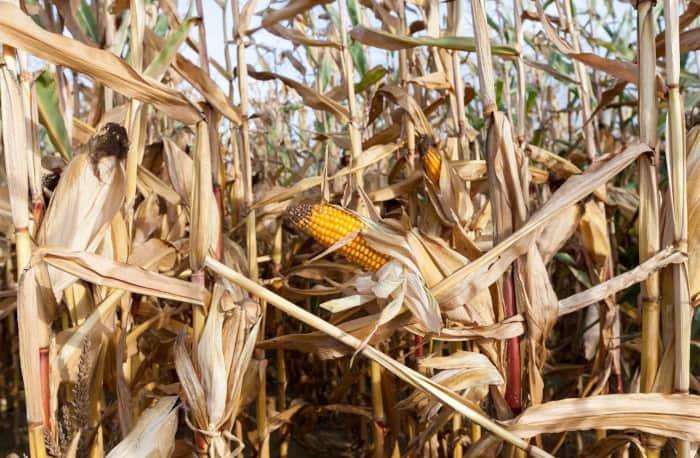
FAQS
Here are some commonly asked questions I see regarding deer eating corn on the cob:
How much corn will a deer eat in a day?
Deer biologists have indicated that deer will potentially consume between two to four pounds of feed, including corn, per day.
Do wild deer eat corn?
Wild deer are known to eat corn, including corn on the cob. However, I suspect that they prefer loose corn because it requires less effort to consume.
Is corn a part of a deer’s natural diet?
Technically speaking, corn is not a natural part of a deer’s diet. However, if deer live in an area where corn is grown as a typical crop, then you might be able to argue that it’s a natural part of their diet.
Can deer digest corn?
Most all species of deer can digest corn. However, large quantities of carbohydrates, like corn, can cause digestive problems and even conditions like acidosis in deer.
Is corn on the cob a good bait for deer?
Yes, corn on the cob can be used as bait for deer. They are often attracted to it. However, it’s vitally important to know the rules and regulations in your area about feeding deer or using food as bait.
Can deer eat cooked corn on the cob?
Technically deer can eat cooked corn on the cob, but they prefer raw corn. Plus, cooking deer corn may remove some of the dietary components that deer need.
Do turkeys eat corn on the cob?
Turkeys will eat corn on the cob, but they definitely prefer shelled corn. Turkeys will try to remove the corn off the cob for consumption. In addition to turkeys and deer, other animal species like squirrels and raccoons are also big fans of corn.
Final Thoughts
Deer can and will consume corn on the cob when available, but it does not offer the same nutrition as some other natural foods in a deer’s diet. Feeding deer corn on the cob is not necessarily a bad option as long as it’s done in moderation. In some respects, corn on the cob offers a better food option for deer as they have to do some work to access the corn on the cob.
